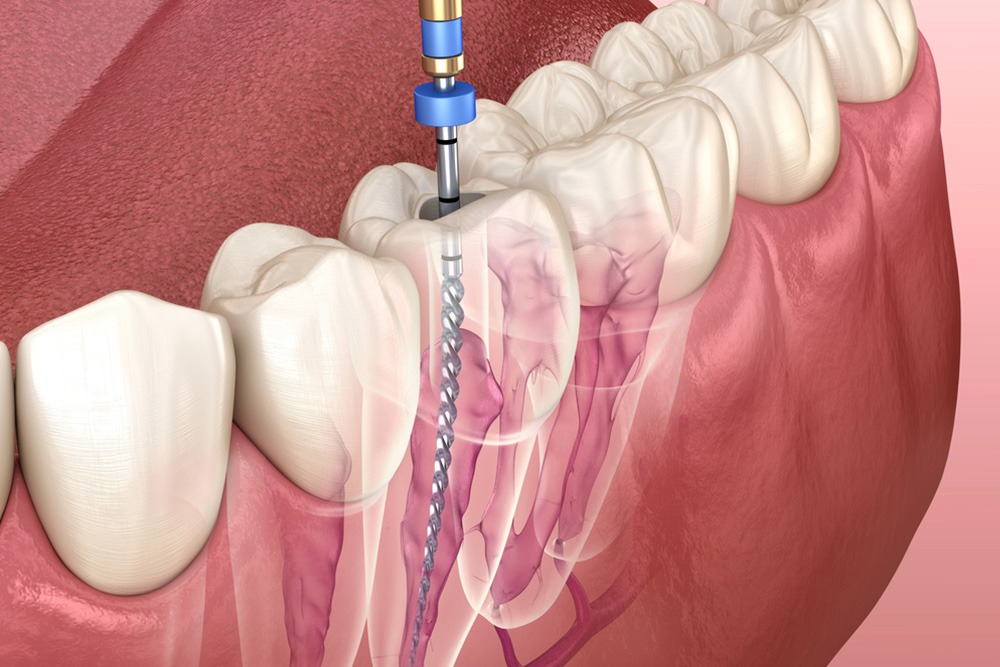
When a tooth becomes severely damaged or infected, you are often faced with two main options: root canal treatment or tooth extraction. Both procedures offer solutions to eliminate infection and prevent further complications, but the choice between them can significantly affect your long-term oral health.
Understanding the differences between a root canal vs. tooth extraction will help you make the right decision based on your specific situation.
What Is a Root Canal?
A root canal is a procedure designed to save a damaged or infected tooth. It involves removing the infected pulp from inside the tooth, cleaning the area, and then filling and sealing it.
The goal is to preserve the tooth’s natural structure and function. Once the root canal is completed, the tooth is restored with a crown, providing strength and protection.
The biggest advantage of a root canal is that it allows you to keep your natural tooth. Unlike tooth extraction, which requires replacing the missing tooth, a root canal can help you avoid the need for prosthetic devices, such as dental implants or bridges.
What Is Tooth Extraction?
Tooth extraction is the process of completely removing a tooth from its socket in the jaw. This is typically recommended when a tooth is too damaged or infected to be saved.
After extraction, the gap left by the missing tooth needs to be addressed to prevent other teeth from shifting, which could affect your bite and appearance.
One common solution after an extraction is replacing the missing tooth with an implant or bridge. These procedures require additional visits, which can increase both the time and cost of treatment.
Benefits of a Root Canal Treatment
A root canal treatment preserves your natural tooth. Retaining the original tooth is important for maintaining proper bite alignment, chewing function, and the overall structure of the jaw.
A root canal helps prevent the spread of infection by removing the infected pulp from inside the tooth, thereby protecting the surrounding teeth and tissues from further damage.
While the initial cost of a root canal may seem high, it can lead to long-term cost savings by avoiding more extensive procedures such as tooth extractions and replacements. This makes it a practical and effective solution for those looking to restore and maintain their dental health.
Potential Drawbacks of Root Canal Treatment
The procedure can require multiple dental visits, especially in more complex cases, which may be time-consuming for some patients.
After the treatment, it’s common to experience some degree of discomfort or sensitivity. However, this is usually temporary and manageable with over-the-counter pain relief.
A root canal is not always a viable option. If the tooth is severely damaged or the infection has progressed too far, the tooth may be beyond repair, making extraction and alternative treatments necessary.
Advantages of Tooth Extraction
Tooth extraction provides quick relief from pain or infection, making it a suitable option in urgent or severe cases. Compared to a root canal, the extraction process is generally simpler and faster, often requiring less time in the dentist’s office. This can be particularly beneficial for patients seeking prompt resolution with minimal dental visits.
Disadvantages of Tooth Extraction
One of the most significant drawbacks of tooth extraction is the loss of a natural tooth, which often necessitates additional procedures such as dental implants or bridges to restore function and appearance.
Although the upfront cost of extraction is typically lower than that of a root canal, the cumulative expenses associated with tooth replacement can become considerably higher over time.
Furthermore, removing a tooth leaves a gap that can cause neighboring teeth to shift out of alignment. This shifting can negatively impact bite function and may lead to further dental complications if not properly addressed.
Expert Guidance for Root Canals and Extractions at Galliano Family Dentistry
Galliano Family Dentistry specializes in personalized dental care and preventative dentistry in Baton Rouge that takes your unique needs into account. Our team will guide you through the process and help you make an informed decision that aligns with your long-term oral health. Reach out to us today to learn more.
